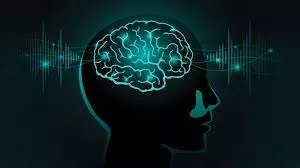An Australian woman became the first person to undergo surgery for depression in Mumbai last month. The 38-year-old underwent deep brain stimulation (DBS) surgery after battling depression for 26 years and suffering to the point where her body stopped responding to traditional treatment methods.
But what is DBS surgery? Who can suffer it? Who is it recommended for? Can it cure depression? What exactly happens in this surgery?
SUITED decrypt everything for you.
Deep Brain Stimulation: Surgical improvement of movement limitation problems
DBS is a neuropsychiatric intervention that involves modifying the symptoms of a disease by modulating the nervous system, explains Dr Akshat Kayal, consultant, neurosurgery, Kokilaben Dhirubhai Ambani Hospital, who recently conducted this surgery on a 65-year-old patient with the disease Parkinson’s disease with severe mobility problems.
What exactly happens in this surgery is that electrodes are implanted in the patient’s brain through which electrical signals are transmitted to the brain.
Dr. Kayal says these signals control movement, block abnormal nerve signals, and ease any symptoms the patient may be facing.
Dr Sudhir Kumar, neurologist, Apollo Hospitals, Hyderabad agrees. He adds that prior to surgery, based on CT scans, PET scans, and functional MRIs, certain parts of the brain causing the symptoms/condition are identified, indicating where the electrodes should be implanted.
But that is not all. A pacemaker is also inserted into the chest or upper abdomen.
These two implants together are meant to change the activity of brain neurons and alter neural circuitry, to restore a sense of normalcy to the brain, explains Dr. Paresh Doshi, neurosurgeon, Jaslok Hospital, Mumbai.
Incidentally, Dr. Doshi was the one who performed the operation on the Australian woman last month. This is the first psychiatric surgery performed in the country since the passage of the Mental Healthcare Act in 2017.
But would you recommend it to all patients suffering from depression?
Ideal candidates, pros and cons: What you should know about DBS
Not exactly. For now, the U.S. Food and Drug Administration has approved this surgery for only four movement-related neurological conditions and one psychiatric condition. These include:
DBS can help them with symptoms such as dyskinesia (involuntary movements), mobility problems, motor fluctuations.
But even for these conditions, it’s not recommended for all patients, only those whose bodies have proven clinically resistant to the treatment.
Dr. Kayal shares that a multidisciplinary team of specialists, including neurologists and neurosurgeons, consider factors such as whether the drugs have proven inadequate, whether they have serious side effects, whether no other treatment is working for the patient, whether the intervention will significantly improve their quality of life, etc.
However, when it comes to depression, the FDA has only allowed DBS to be conducted as an experimental surgery and has not yet approved it.
Dr. Kumar says SUITED:
For depression, the first line of treatment is medication, along with counseling and psychotherapy. 70 out of 100 patients respond to these. But that doesn’t mean that all the other 30 who are clinically resistant to these treatments would require DBS.
Dr. Doshi agrees. He shares that, currently, DBS is an option only offered to those suffering from severe or very severe depression and have exhausted all forms of medical treatment available.
The cost of the surgery also significantly limits who DBS might be accessible to. In India, the surgery can cost between Rs 8-15 lakh.
Risks associated with DBS
But even if someone undergoes DBS, there are some risks associated with it.
There is another risk associated with it, which is somewhat (or extremely) counterproductive.
“Patients may have normal surgical side effects such as headaches, mood changes, loss of speech, etc., for a short time. But they may also have suicidal thoughts and tendencies.
Dr. Sudhir Kumar
This is why, says Dr. Kumar, for which the surgery is not yet approved by the FDA for depression.
However, Dr. Doshi, comes to her defense. He says SUITED that for each surgery electrodes are implanted in different parts of the brain, targeting different neurons.
When it comes to depressed patients, the targeted neurons don’t cause this side effect, he assures.
However, in addition to the side effects and risks, there is another concern as well. Once the surgery has been performed, after a few weeks, the device is switched on and set according to the patient’s needs.
Periodic fine-tuning of electrical stimulations through constant titration becomes necessary, says Dr. Kayal.
What kind of results has DBS shown previously?
For the Australian woman who had the surgery last month, it’s too early to say anything about the results DBS might have on her. The improvements, or side effects, appear 6-9 months after the operation.
However, says Dr. Doshi, in terms of fatigue and anxiety, there were early improvements in the patient.
But overall, DBS has shown significant results. Dr. Kumar says only a tiny number of people globally (fewer than 200) have had DBS for depression, and about 20% are in remission, with 35% of them also showing improved symptoms.
When it comes to patients with movement disorders, however, DBS has shown promise.
After undergoing DBS surgery, patients and their families can expect a reduction in tremors and an improvement in symptoms such as rigidity, bradykinesia (slowness of movement), dystonia (sustained or repetitive muscle twisting, spasm, or cramps), and dyskinesia ( involuntary movement). DBS can also help reduce the amount of medication patients need, therefore minimizing drug-related side effects.
Dr Kayal at FIT
Also according to Johns Hopkins Medicine,
Researchers who have followed patients after DBS have found that many patients continue to have improvements in their symptoms for several years after the procedure and are able to eat, use the bathroom and feed themselves.
(At The Quint, we only respond to our audience. Play an active role in shaping our journalism by becoming a member. Because the truth matters.)
#Woman #undergoing #surgery #depression #Mumbai #deep #brain #stimulation
Image Source : www.thequint.com
